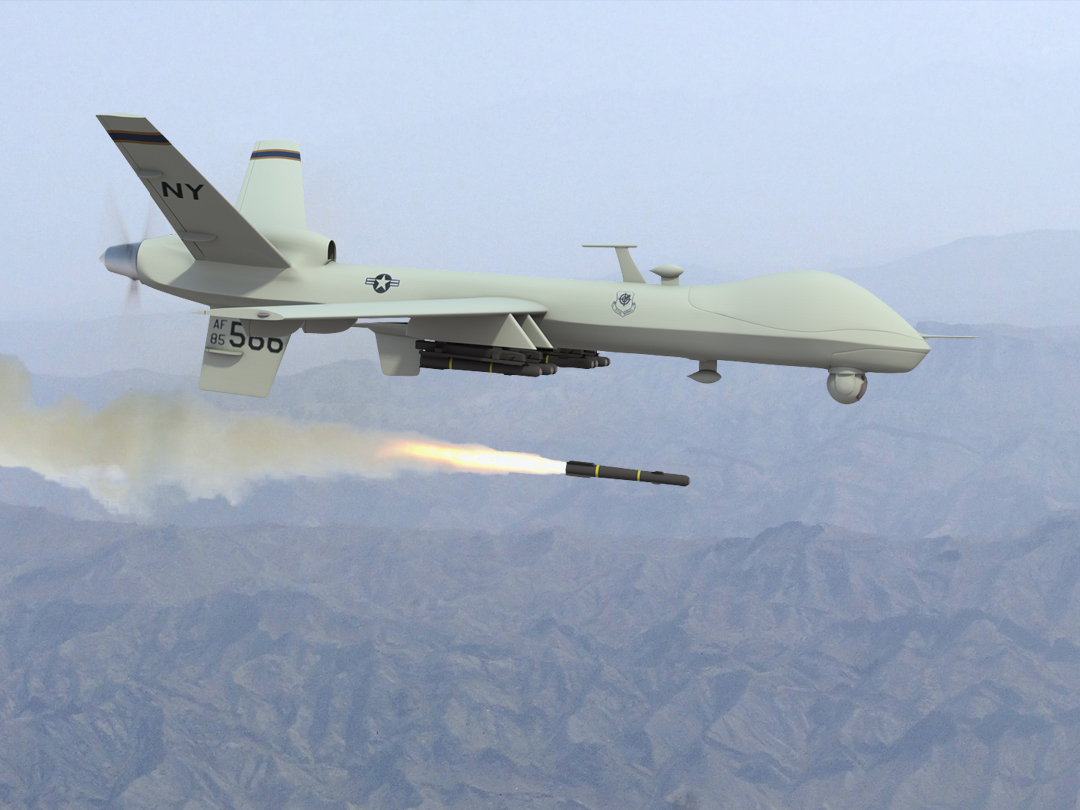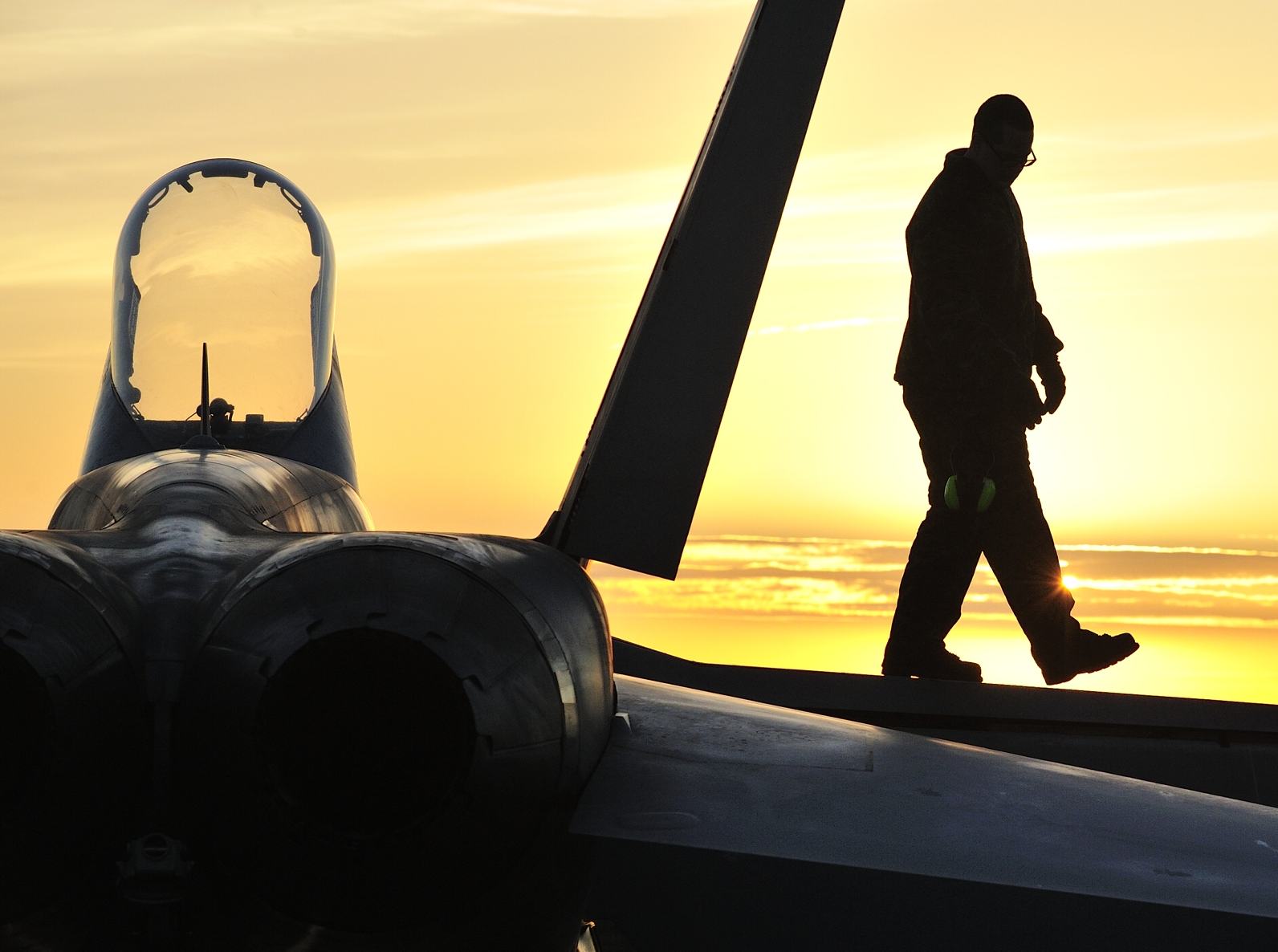“Le marchand de la mort est mort.” In 1888, a French newspaper published the obituary for Alfred Nobel, the inventor of dynamite. In it, they printed the words “the merchant of death is dead” for his hand in changing the face of warfare to become more violent, destructive, and dangerous than ever before. In fact, the newspaper mistook the death of Alfred’s brother, Ludwig, for that of the famed inventor, a turn of events that is said to have pushed Alfred to create the Nobel prizes, a gesture of atonement and responsibility.
Alfred Nobel’s story illustrates the somewhat peculiar moral weight that seems intrinsic to technologies of war; the oncoming wave of drone technology is a case-in-point. In part one of this series, I indicated that Canada was headed into uncharted territory with respect to its UAV (Unmanned Aerial Vehicle) prospects. While the Joint Uninhabited Surveillance and Target Acquisition System (JUSTAS) has not yet produced a tangible procurement, it is all but certainly beyond “for” or “against” advocacy; armed drone technology is probably here to stay. Rather, perhaps the more important questions have to do with the responsibility incumbent upon the Canadian Forces for their operation in practice. What about war can be justified in the first place? What is it about drones themselves that make them so morally ambiguous? What may change in the future should they be subject to continuing scrutiny?
Taking each of these questions in turn, the first is almost certainly the most difficult. Philosophers and political thinkers alike have been considering the principles of the Just War for millennia. This body of thought has traditionally been directed at two distinct but interrelated questions: the first dealing with the good reasons for going to war (Jus Ad Bellum) and the second with the right ways to fight it. While the first is obviously important, our concern with drones has more to do with the second question – the right conduct of war.
The rules of Jus in Bello have been increasingly codified into principles designated by the international community, most notably in the UN charter and the Geneva Conventions. The most commonly cited of these rules are the principles of discrimination, which concerns the legitimate targets in war (combatant and non-combatant), and proportionality, governing the level of force that is morally appropriate in a given context. A leaked US Department of Justice white paper outlining the legal justification for drone strikes according to domestic and international law seem to embody these principles, but it’s clear, given their problematic track record that they are not always upheld. Drone strikes have repeatedly caused collateral damage to civilians, and it’s not clear that the level of force can be readily made proportional to the imminence of a threat.
While there is very little transparency on the inner workings of this process, particularly in the case of armed drones, it appears that the problems stem not from the adherence to justified standards of engagement, but something more specific to the medium of force itself.
That the principles of Jus in Bello are acknowledged on some level in drone operational protocol implies there is some disconnect between policy and action. In the US case, the legal verification system for drone strike is consistent with that of conventional strikes: specially trained lawyers pour over intelligence data to determine whether or not a given operation will violate the Geneva conventions. While there is very little transparency on the inner workings of this process, particularly in the case of armed drones, it appears that the problems stem not from the adherence to justified standards of engagement, but something more specific to the medium of force itself. This leads us to our second question regarding the intrinsic nature of drone technology.
One would think that there would be little difference between manned and unmanned aircraft with respect to whether or not they will be deployed and if they will use their weapons in the field; the main difference, after all, is in how far the pilot is from the trigger. Former federal Liberal Party leader and political theorist Michael Ignatieff argues, however, that democracies have a tempering effect on the willingness for war and conflict: “When the people decide to go to war, they rarely do so willingly”. Though this thesis proves difficult to defend in practice, his point about drones is that the lack of risk to soldiers pacifies the forces of prudence that tend to reign in military activity.
This theoretical standpoint seems consistent with the work of experts in the field of international law with most accounts focusing on the ease of the deployment of drones, as well as their apparent effectiveness in the context of asymmetric warfare. They argue that the language contained in policy guidelines is ill-suited, too flexible, or too vague to harness the new horizons of military capability provided by drone technology. One author of a UN report discussing drone strikes published in 2013 points out that there is little legal distinction between conventional aircraft strikes and those of UAVs: “it is difficult to suggest that a weapon system is unlawful because a pilot is not on board.” While he takes the technology itself to be legal, he is quick to point out that it does pose challenges because it is much easier to deploy secretly and often across national borders, which raises significant accountability issues. Another UN report points out that it is “extremely difficult to assess claims of precision targeting objectively.” In any case, there is little in the way of consensus in the field of international law regarding the fundamental legal principles of armed drone activity.
This seems to suggest that the technology has been insufficiently institutionalized – its standards and regulations not yet matured, or politically pressured to mature, for responsible application. This deals with our third question, pertaining to the future of drones given sustained international attention.
Weapons of war, even those controlled by very powerful states, are not impervious to international regulation or even prohibition. Chemical and nuclear weapons are perhaps the most notable examples, but an important one from a Canadian perspective is the global ban on anti-personnel (AP) land mines enacted in 1997 through the Ottawa Protocol. Here, non-governmental and governmental groups in Canada played an important role in rallying international awareness and attention to the moral problems associated with a widely used military technology. Similarly, sustained international pressure and attention make drones a likely target for multilateral measures to enforce accountability and responsibility.
As Canada moves forward in its drone procurement program, several lessons can be gleaned from the above discussion. The principles of Jus in Bello must be enshrined in a clear operational protocol with an independent system of checks and balances to verify the feasibility of military objectives. The system must be allowed to be as transparent as possible, helping to enforce the connection between a concerned electorate and the employment of armed UAVs in the field. Finally, Canada should be a leader in coordinating international standards for armed drone use. Through measures such as these, it may be possible for the Canadian Forces to evade the moral quandaries that are associated with drones; JUSTAS and justice need not be mutually exclusive.





